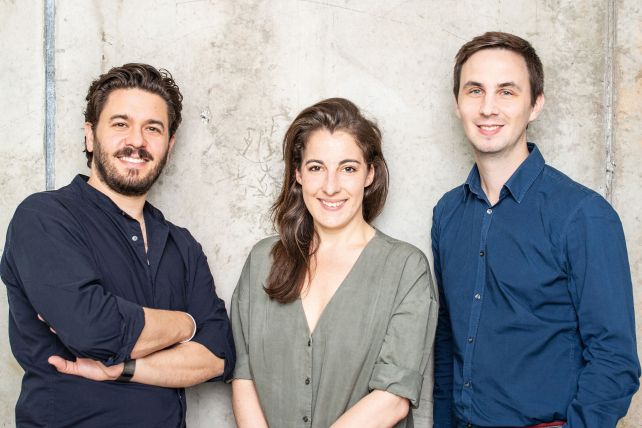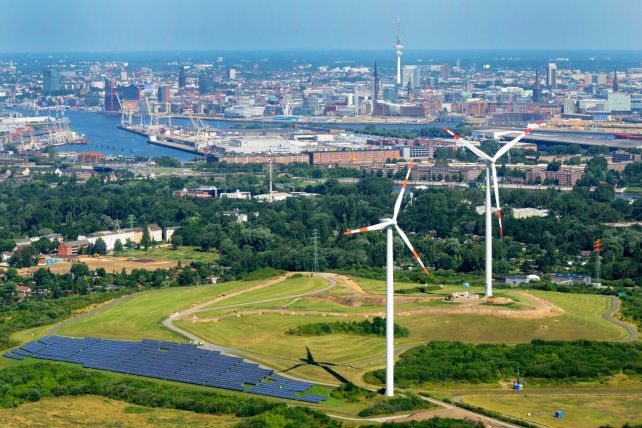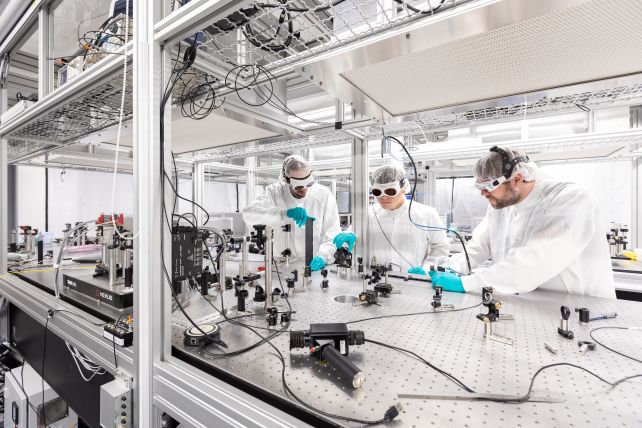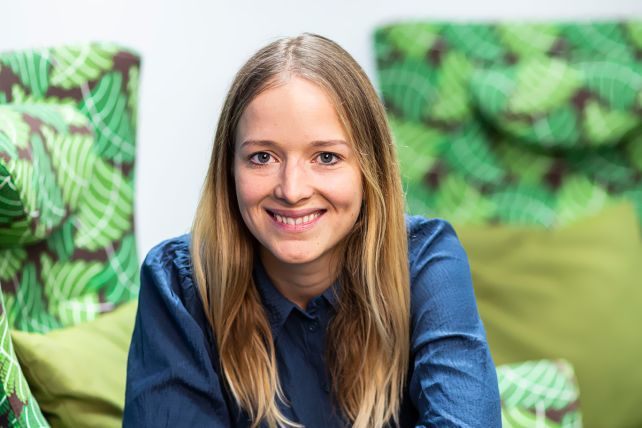Colipi transforms CO2 into sustainable oils
Numerous startups have made it their mission to do their part in the fight against climate change. The approach of Colipi from Hamburg is particularly fascinating: this company uses microorganisms to produce sustainable oils that can replace palm oil, for example. And it even binds CO2 in the process.

A genuine palm oil alternative is being created in Hamburg
It is hard to imagine German households without palm oil; according to the environmental protection organization WWF, it is present in every second supermarket product. Producers of margarine, sweets, detergents and cleaning agents in particular can hardly do without palm oil. The problem is that it is too seldom grown sustainably, and far too often valuable rainforests are cleared and replaced by monocultures. This harms biodiversity and the climate. The startup Colipi, which originated at the Technical University of Hamburg (TUHH), is now preparing to launch a sustainable alternative on the market, relying on natural fermentation processes.
One of the founders of Colipi is Philipp Arbter. Born in Krefeld, he studied biotechnology in Berlin, Lafayette (USA) and Munich. For his bachelor's thesis, he first looked at the production of lipids (fats) by yeast. In 2016, Philipp joined the Institute of Bioprocess and Biosystems Engineering at TUHH. His doctoral thesis focused on how to couple biotechnological processes for the production of special chemical compounds with electrochemical processes to make them more effective and sustainable. There, too, the focus was on oil production using yeasts, and he found that this process had not yet become established on an industrial scale. Many potential customers were simply unaware of it, while others shied away from the financial risk involved in establishing a new technology.
As is well known, a willingness to take risks is part of the basic equipment of every ambitious startup, as is a promising idea. In the case of Colipi, this initially consisted of producing oils through fermentation. This involves the use of yeasts that utilize sugars from industrial and agricultural waste products. After nitrogen and phosphates in particular have been consumed, growth stops and lipids are formed with the remaining surplus of carbon. These lipids can then be isolated and, depending on the type of yeast, are very similar to many vegetable oils. However, it would also be possible to create completely new lipids that would be more suitable for certain applications than previously known oils.

TUHH as a nucleus for Colipi
So the potential is enormous. To exploit it properly, a startup like Colipi needs team members with complementary skills. Max Webers already knows Philipp from his time in Berlin. Max also studied biotechnology and additionally management and thus brings together scientific and economic know-how. In the team, he is responsible for questions of organization and communication. The other two co-founders, Tyll Utesch and Jonas Heuer, come from the Institute for Bioprocess and Biosystems Engineering at TUHH. Tyll received his PhD there in 2019. At Colipi, he is responsible for implementing CO2 neutrality. Jonas shared an office with Philipp for a time and wrote his PhD thesis on the enzymatic use of CO2. He also knows a lot about product development and has completed an internship at a cosmetics company. Finally, he takes care of regulatory affairs.
Colipi first attracted attention during a presentation as part of the Calls for Transfer program sponsored by the TUHH. It aims to transfer university projects into the world of business and supports them with up to 30,000 euros. At the end of 2020, Colipi had failed in its first attempt to apply for funding through EXIST-Forschungstransfer from the German Federal Ministry of Economics. With the new support also from the beyourpilot platform initiated by the Hamburg universities, it then worked in mid-2021 at the second attempt. In November 2021, the first funding flowed to aim for oil production on an industrial scale.
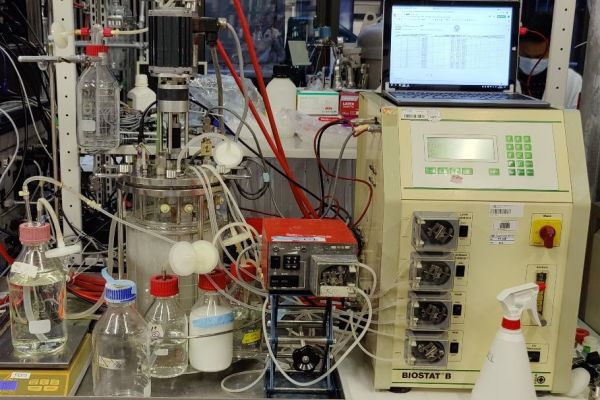
A new process promises even more sustainability
There is still a long way to go, and the fermentation process originally used is not the best solution in the long term either. This process actually produces CO2, which contradicts the original idea of climate protection. That's why the Colipi team has been working for some time on a method of capturing the excess gas with the help of certain bacteria. Here, they broke new ground and have now even patented the process. Gas fermentation, as the method is also called, is nothing fundamentally new. There are different variants that have one thing in common: Hydrogen (H2) and carbon oxides (CO/CO2) are always involved. Colipi uses aerobic bacteria, that are also dependent on oxygen (O2) for their metabolism.
Gas fermentation can be used to produce all kinds of useful raw materials. During its research, Colipi discovered that this also includes oils. This means that in the future the startup could dispense with the detour via fermentation by yeast and use bacteria directly for lipid production. The process that is currently still mainly used therefore represents a kind of bridging technology and is preferred right now only because scaling up seems possible within a few years. With gas fermentation, on the other hand, it can take up to ten years before larger quantities are feasible.


Bright prospects for Colipi
Perhaps things will move a little faster if the subsidies continue to flow as they have recently. At the end of April 2023, Colipi received a substantial boost from the EXIST funding pot. An additional 2.9 million euros were approved, bringing the total to 4.1 million euros. This will enable Colipi to expand its team and drive research and development forward. The startup has set its sights on companies in the cosmetics and cleaning products sectors as its first customers. Here, the approval procedures are less complicated than in the food industry.
When it comes to processing CO2, the keyword "direct air capture" often comes up, which means the extraction of carbon dioxide directly from the air. However, this cannot take place on a greenfield site, as the concentration of the gas there is too low for the current state of technology. The vicinity of industrial plants offers a more suitable location because the CO2 content in the air is higher there. The supply of hydrogen could also play a role, a possible advantage for Hamburg, which is committed to promoting hydrogen technologies.



